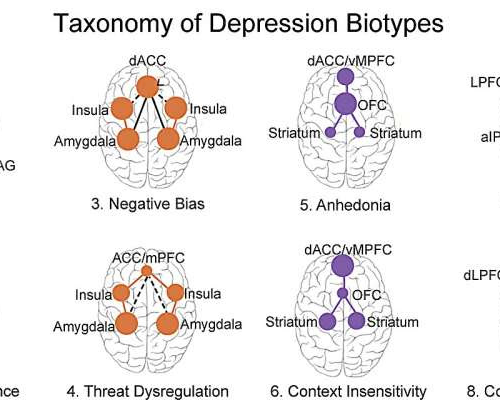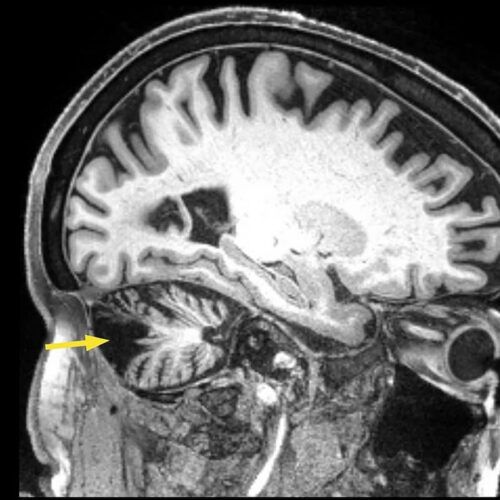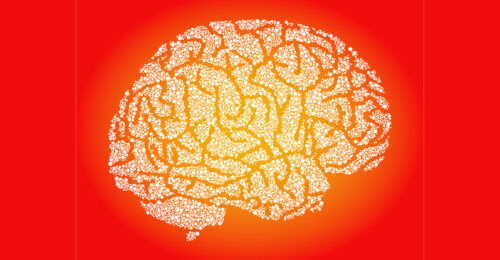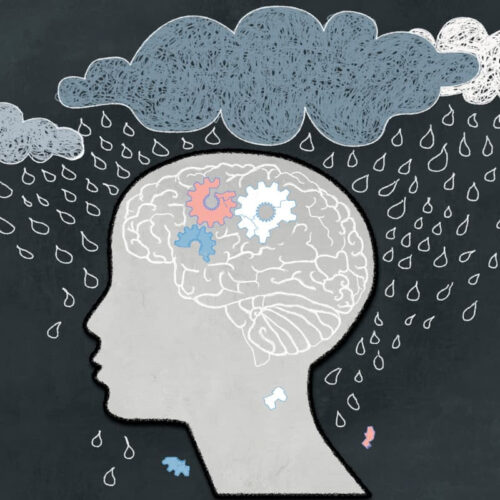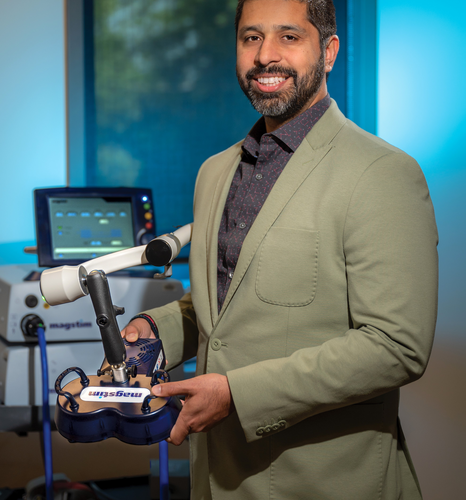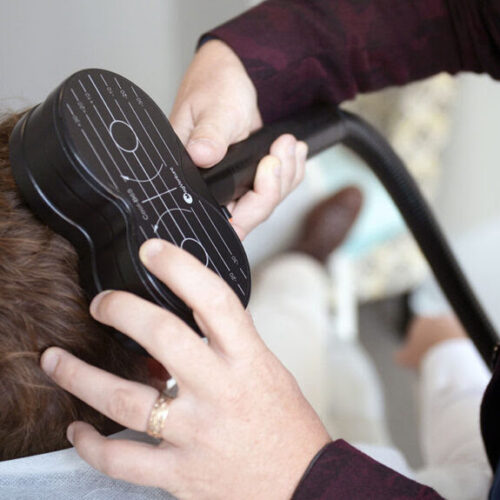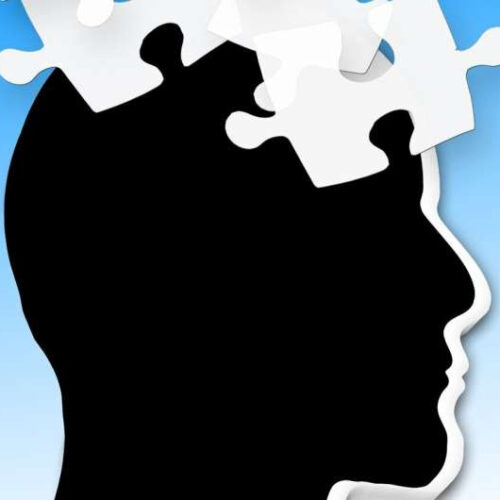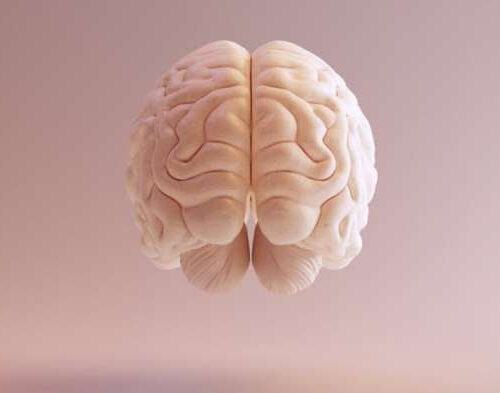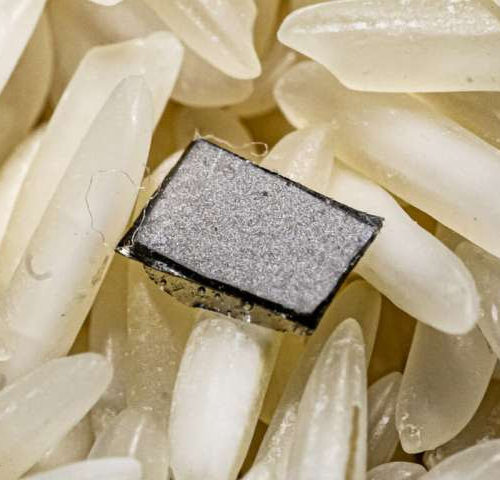JULY 24, 2024 by Ingrid Fadelli , Medical Xpress Overview of biotypes that underlie the heterogeneity of clinical depression and associated depression, and which can be assessed using functional magnetic resonance imaging to quantify the activity of brain regions and the functional connectivity between brain regions. Credit: Williams LM. Precision psychiatry: a neural circuit taxonomy...
Tag: <span>Magnetic stimulation</span>
Magnetic stimulation improves movement & balance 12 years after stroke
By Paul McClure | October 24, 2023 Using magnetic stimulation on the brain of a man who had a stroke 12 years ago improved his movement and coordination, a case study has shown. Einstein et al./UCLA Health Researchers have used repetitive magnetic stimulation on the brain of a man who’d had a cerebellar stroke 12...
We May Finally Know Why Magnetic Stimulation on The Brain Can Ease Depression
HEALTH 28 May 2023 By DAVID NIELD (Flavio Coelho/Moment/Getty Images) Stimulating the brain with magnetic fields can help relieve the symptoms of depression in some people, but scientists haven’t been sure precisely why it works. A new study offers some insight: The process reverses brain signals going in the wrong direction. These neural streams of activity going in the...
Magnetic stimulation treats depression by fixing “backwards” brain signals
By Michael Irving May 17, 2023 Stanford scientists have uncovered a new mechanism behind depression – and shown how magnetic stimulation can help treat it. Depositphotos Stanford scientists have discovered a major biological mechanism behind severe depression, and shown how to treat it. Signals between two key parts of the brain seem to flow the...
Magnetic stimulation may improve the pain, nausea of diabetic gastroparesis
MEDICAL COLLEGE OF GEORGIA AT AUGUSTA UNIVERSITY IMAGE: AMOL SHARMA, MD CREDIT: MICHAEL HOLAHAN, AUGUSTA UNIVERSITY AUGUSTA, Ga. (May 16, 2023) – Magnetic stimulation of a group of nerves key to how our gut and brain communicate may help correct the conversation that goes awry in painful, debilitating diabetic gastroparesis, researchers say. Patients come to Amol Sharma, MD, because...
What to know about treating anxiety with transcranial magnetic stimulation (TMS)
Transcranial magnetic stimulation (TMS) is a procedure that uses an electromagnetic coil close to the skull to deliver magnetic pulses into the brain. These pulses can alter nerve cell activity in areas of the brain involved in mood regulation, which may help treat anxiety. It is typical to experience occasional anxiety, but if someone feels frequently...
The Promise of Transcranial Magnetic Stimulation
Recently, actor Bruce Willis announced that he would step away from his acting career due to complications resulting from aphasia. Aphasia is the loss or impairment of the ability to speak or write. It can result from damage in the brain area that controls language expression and comprehension. Damage can result from stroke, head injury, brain tumor,...
Magnetic stimulation of the brain can improve episodic memory
by Public Library of Science Credit: Geralt, Pixabay, CC0 (creativecommons.org/publicdomain/zero/1.0/) Memories of past events and experiences are what define us as who we are, and yet the ability to form these episodic memories declines with age, certain dementias, and brain injury. However, a study publishing in the open access journal PLOS Biology on September 28th by Mircea van...
What is repetitive transcranial magnetic stimulation and how does it actually work?
by Paul Fitzgerald, The Conversation Credit: www.shutterstock.com A line in this week’s federal budget allocating A$288.5 million to repetitive transcranial magnetic stimulation (rTMS) therapy might pass most people by. This is a brain stimulation technique that’s been used to treat conditions such as depression for almost ten years in Australia, but which has not been funded through Medicare and so has...
Rice team makes tiny, magnetically powered neural stimulator
by Rice University A sample of Rice University’s ‘magnetoelectric’ film atop a bed of uncooked rice. Rice neuroengineers created the bi-layered film to power implantable neural stimulators that are approximately the size of a grain of rice. The film converts energy from a magnetic field directly into an electrical voltage, eliminating the need for a...
- 1
- 2

